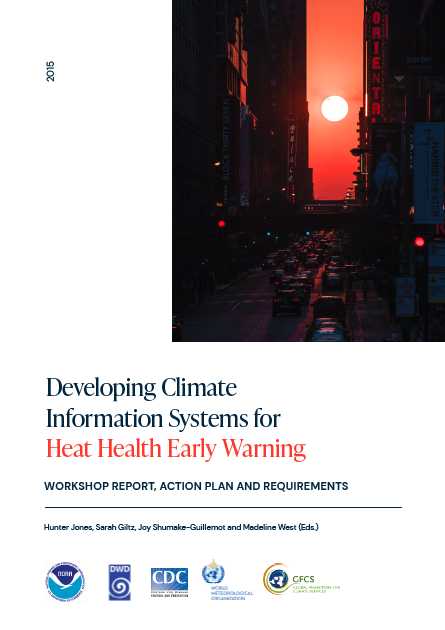NOAA, DWD, CDC, WMO, GFCS, 2015
Author(s): Hunter Jones, Sarah Giltz, Joy Shumake-Guillemot and Madeline West (Eds.)

Oppressive weather in the form of extreme heat (temperature and humidity) is a global problem. In the past several years, these extremes have touched communities around the globe, resulting in lost work hours, hospitalizations, and even death. Just this past summer (2014), extreme heat swept across Europe in July and the Middle East and Indian subcontinent in August, triggering health consequences, energy shortages, and even protests (Valentine, 2015). Meanwhile, climate projections indicate that such extremes are only likely to be more frequent and more intense in the future (Walsh et al. 2014; Figure 1). Unmitigated, the health consequences of extreme heat will grow over time.



